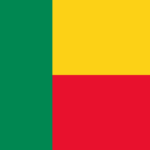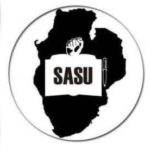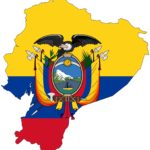Emmanuel Kaliwo – Malawi Nationale Students Union (MANASU)
In the first place.
Malawi National Students Union is an umbrella body for all universities in Malawi.
 The overall objective is to unify the students and make sure that they have a voice of issues that matter to them as well as matters of national interest.
The overall objective is to unify the students and make sure that they have a voice of issues that matter to them as well as matters of national interest.
As part of continental bodies, we aim to add voice to matters of interest at continental or regional level such as access to education.
Our goals of unifying students and having a say at national and regional level can be incorporated in the International Student Council. These issues cust across several students bodies both local and international.
The council should have executive members from selected from regional bodies.
Thank you.
——————————————————————————————————————————
Malmo Jawneh – Education Students’ Association (EDUSA – GAMBIA)
We the students of the school of Education, University of The Gambia hereby have a common objective and aspiration to form an association (herein after Education Students’ Association, EDUSA.) This is to be governed by the spirit of the provisions of our  Constitution. The aims and objectives of the association are to protect and promote the interest of its members. The association shall endeavor to make strong ties amongst its members and the administration, and thrive to achieve its goal towards national development. The Association is established by virtue of our constitutional right, (freedom of association) as provided in the Constitution of the Gambia. We recognized that the University is an assemblage of scholars, endeavoring to broaden their scope in all spheres of human dimension. Therefore we join in that drive, by recognizing ourselves through the conceptualization and creation of an association. We are aware of the importance of educational sector of the Gambia in its crusade of attainment of assessable, relevant and quality goals, and the role of teachers in this endeavor. We commit our self to same and the rising the performance of the young generation in the basic and secondary education purview.
Constitution. The aims and objectives of the association are to protect and promote the interest of its members. The association shall endeavor to make strong ties amongst its members and the administration, and thrive to achieve its goal towards national development. The Association is established by virtue of our constitutional right, (freedom of association) as provided in the Constitution of the Gambia. We recognized that the University is an assemblage of scholars, endeavoring to broaden their scope in all spheres of human dimension. Therefore we join in that drive, by recognizing ourselves through the conceptualization and creation of an association. We are aware of the importance of educational sector of the Gambia in its crusade of attainment of assessable, relevant and quality goals, and the role of teachers in this endeavor. We commit our self to same and the rising the performance of the young generation in the basic and secondary education purview.
In the above secret spirit, we pledge our firm allegiance in nation building to contribute our quota.
The aims and objectives of our organisation include;
To promote the welfare of members of EDUSA and engage in academic and social research.
To promote the interest of students in the school, through consultation and dialogue with relevant authorities.
To establish the culture of academic and social research to increased educational knowledge.
To encourage the publication of academic magazines, booklets and pamphlets. Seek to foster a close working relationship with public enterprises and private sector.
To explore opportunities for developmental purposes for its members. To seek employment opportunities for its graduating students.
To foster close links and cordial relationship with sister club/association in the University, UTGSU, UTG authorities and other Universities within and outside the country.
To encourage solidarity among students and promote camaraderie within the student fraternity of the UTG.
To participate in the promotion of quality promotional delivery and improve performance through teaching, research, symposia, debate, seminars, public lectures etc. To engage in fund raising activities to enhance the activities of the association.
To establish cordial relationship with the ministry of education, the Gambia Teachers Union and any other institution which share the same goal with the association.
Part of the goals that can be considered as international commonalities include sharing activities with different organizations in the council; joint collaboration in producing strong academic papers; exchange programs and other important goals.
I believe the structure of the council should be all inclusive. Each member organisation should feel themselves in the structure of the council. That’s we need to establish a strong executive with a constitution that will guide the operation of the council.
Thank you!
——————————————————————————————————————————-
Jean Eudes Agathe – MAURITIUS
Like I mentioned before, I am not part of any organization. I am working mostly alone and it has been a very tedious task trying to convince colleagues and my fellow citizens to join this journey. What are my goals towards ensuring a better education? Well, it is not an easy question to answer. Here in Mauritius, we have the chance to have most of our education free. Textbooks from primary to secondary institutions are free to most of us (state and Roman Catholic schools are concerned. Private schools are not.), university fees have been reduced, where only administrative fees are being paid for first-timers.
 However, there is a lack of action from our students here. Our voices are not entirely silenced but most of the time not considered or overlooked. This has caused problems in the educational system in the Republic, where the main stakeholders i.e. students and teachers, are being seen as essential but not enough to be consulted when decisions are taken. So, there has been minor discussions to ensure the voice of learners and teachers are heard and considered, mainly from NGOs. The quality of education here in the country is average due to part of the population not having the adequate fi nancial status. Since the pandemic, diffi culties have arisen due to homeschooling. Bad or no internet connection for a huge part of the country AND the republic. Our students have found themselves lose more than a year in their educational journey. I, for my part, is trying, as a teacher, to deliver as much as possible to students in this time of pandemic but again, diffi cult situation. This is the actual situation right now in Mauritius and my position paper also talks about what is being done to ensure delivery of quality education.
However, there is a lack of action from our students here. Our voices are not entirely silenced but most of the time not considered or overlooked. This has caused problems in the educational system in the Republic, where the main stakeholders i.e. students and teachers, are being seen as essential but not enough to be consulted when decisions are taken. So, there has been minor discussions to ensure the voice of learners and teachers are heard and considered, mainly from NGOs. The quality of education here in the country is average due to part of the population not having the adequate fi nancial status. Since the pandemic, diffi culties have arisen due to homeschooling. Bad or no internet connection for a huge part of the country AND the republic. Our students have found themselves lose more than a year in their educational journey. I, for my part, is trying, as a teacher, to deliver as much as possible to students in this time of pandemic but again, diffi cult situation. This is the actual situation right now in Mauritius and my position paper also talks about what is being done to ensure delivery of quality education.
Concerning the International Student Council, what is common to all of us? What has brought us here for this meeting. A student voice was required and a need for action towards humanity and education. I am thrilled to contribute in any ways possible towards helping each of us willing to participate in this council. Discussions can be held more often, actions taken more swiftly. I think this international council will offer a safe environment to share our ideas and express ourselves freely on how these ideas can be wielded into actions. With the pandemic, ongoing wars, famine, corruption and so on, having a group of open-minded and hard-working individuals will surely bring this Extension of Human Rights to Education to another level. I have not been part of any council and my contribution will be small but sincere. Below I have listed what I think are the goals to ensure a good start, a good basis for the International Student Council. Goal:
– Promote mutual cultural and intellectual sharing. Let us know each other and the difficulties we are facing in our communities. Seeing the world through our friends’ eyes can bring us closer to helping each another.
– Communication. Ensure that we can communicate as much as possible. Either through a common group, or individually to each other or between us. I am sure he will be glad to pass any relevant information to us.
We have seen how educational systems were fragile and precarious worldwide. More problems have been added and less solutions are being offered. This International Council could be part of a solution.
———————————————————————————————————————————
Jules Chanvoedou – Union des Etudiants en Comptabilite, Audit et Contrôle de Gestion du Benin (UECACOG)
I will answer your question point by point.
 1. The objective of our organization is to defend the interests of the student sector.
1. The objective of our organization is to defend the interests of the student sector.
− Support groups for students who drop out of schools due to lack of resources.
− Support for the students living through minimal subsistence level.
− Raise awareness in students to make them go towards sectors sought on the labour market.
We have more goals, but I must comply to the word limits requested.
2. Among these objectives, i.e., those concerning the protection of the interests of the student sector Union and raising awareness in students to go towards sector sought on the labour market, can be the international foundation basis.
3. This Council can be structured by grouping organisations by country. Signed by the coordinator,
—————————————————————————————————————————–
Alistar Pfunye – Sauthern African Students‘ Union (SASU)
About SASU Southern Africa Student Union (SASU) represents all students within the SADC region and provides space through which students can exercise their agendas, raise and amplify their voices primarily on issues of education as a right, regional governance, development, democracy and confl icts which threaten their future prospects as citizens of SADC member countries. SASU envision a SADC that is free from racialism, sexism, and any form of prejudice; a democratic and economically vibrant and prosperous region, in which young people, and students in particular, are valued, respected and supported through the provision of free, quality, relevant and working class biased education, as well as quality and decent jobs.
Southern Africa Student Union (SASU) represents all students within the SADC region and provides space through which students can exercise their agendas, raise and amplify their voices primarily on issues of education as a right, regional governance, development, democracy and confl icts which threaten their future prospects as citizens of SADC member countries. SASU envision a SADC that is free from racialism, sexism, and any form of prejudice; a democratic and economically vibrant and prosperous region, in which young people, and students in particular, are valued, respected and supported through the provision of free, quality, relevant and working class biased education, as well as quality and decent jobs.
Introduction and context
Students in the SADC region are protesting over educational policies that are hindering their progress and success while in school and after graduation. Protests have been sparked by excessively high tuition fees, unpaid living allowances, and/or the lack of infrastructure and learning materials which impact negatively on the academic livelihood and mental health of the students while studying. Some of the students’ protests have turned violent mainly due to the lack of a medium to help channel and address the issues that students face. Student’s constructive protests are become destructive and violent as governments neglect their obligations to address root causes of grievance and also due to government’s failure to come up with lasting solutions. There is massive dropout in higher learning institution justifi ed by high fees, tough economic circumstances worsened by the covid-19 pandemic and the situation is worsened by governments reduced expenditures in the education sector.
Strategic priorities
Strategic objective. 1: Advocate for free quality education and promotion of academic freedom in the region, underpinned by rule of law, democracy and protection of fundamental rights, e.g. freedoms of association and expression,
Strategic objective 2: Effective representation of student unions to influence the decisions and policies of SADC institutions, governments and administrations of institutions of higher learning to refl ect the needs of students.
Strategic objective 3: To increase the recognition of the value and contribution of SASU by SADC, Governments, civil society and student communities.
Strategic objective 4: To improve SASU’s institutional capacity to represent and advocate on behalf of student unions in the SADC region. Strategic Approaches
Rights based approach (RBA) facilitates SASU to achieve a positive transformation of power relations among the rights holders (who do not experience full academic rights) and the duty bearers (the institutions obligated to fulfi l the holders‘ rights)
Policy Influencing to impact decision making or to change a policy that is not serving students related interests. This approach recognizes that a change in policy is essential in order to bring about lasting change in the lives of disadvantaged students.
Partnerships and Networking we believes that achieving academic freedom cannot be achieved by one organization or actor, hence, we will work in a collaborative manner with other likeminded organizations in addressing student challenges.
Capacity building Part of SASU’s concept of sustainability is pegged on the premise that well capacitated students are key instruments in scaling up and sustaining continuous transformative change in this complex and technical subject of enhancing academic freedoms.
Research Based Advocacy SASU will utilise its thousand academics to produce thought-provoking research products that will be utilised by students in their lobby endeavours. SASU will produce foundational research that can provide transformative policy alternatives, model laws, trainings, and analyses at all levels.
Recommendation for the global student council
• solidarity platform
• networking
• exchange programs
• research and position papers
• global campaign for education
• gender campaigns
——————————————————————————————————————————–
Alixon Mauricio – Federación de Estudiantes Universitarios del Ecuador (FEUE)
– Presentation of your organization?
 The Federation of University Students of Ecuador is a student organization with over 80 years of existence that struggles for the defense of public education, is a democratic, patriotic, anti-imperialist organization.
The Federation of University Students of Ecuador is a student organization with over 80 years of existence that struggles for the defense of public education, is a democratic, patriotic, anti-imperialist organization.
– Which are the defi ned objectives of your organization?
To struggle to defend public education, to defend the rights of the Ecuadorian people, and to build a fully autonomous, quality, scientific and intercultural university at the service of the people.
– Which of these objectives could be considered as common international objectives and could be considered as the basis for the foundation of an international organization Student Council?
Solidarity, Democracy, defense of public and accessible education for all, to achieve the ODS.
– How should this council be structured?
By a coordinating team representing each continent, this team should have an organizing committee consisting of three members who will be responsible for pushing the planned activities, the organizing committee should change every six months and the international coordinating team every year.
——————————————————————————————————————————-
Jose Luis – Associação dos Estudantes Finalistas Universitários de Moçambique (AEFUM)
PRESENTATION
Association of University Finalist Students of Mozambique (AEFUM) is a non-governmental, non-profi t organization, founded in 2005 by university students, with the aim of advocating the professional integration of fi nalist and graduate students. AEFUM has its central offi ces in Maputo City and has provincial delegations in all provincial capitals. It has a leadership structure represented by a General Coordinator, a National Executive Secretariat, Provincial Coordinators and Coordinators of labor sectors. Currently, AEFUM has more than ten thousand members, including fi nalist and graduate students.
 Since its inception, it has implemented programs such as: Vacation Developing District Program (PFDD); Psycho-social support project for Orphaned and Vulnerable Children (OVCs); Training Project on HIV and AIDS Integration Mechanisms in Sectors and Programmes; Community Outreach; Knowledge Center Project; Environmental Protection Projects; Entrepreneurship Project Fairs; Entrepreneur Assistance Program; Professionalization and Training of Young University and Graduate Students in several areas of interest; Volunteer programs and; Art projects for the preservation of the environment.
Since its inception, it has implemented programs such as: Vacation Developing District Program (PFDD); Psycho-social support project for Orphaned and Vulnerable Children (OVCs); Training Project on HIV and AIDS Integration Mechanisms in Sectors and Programmes; Community Outreach; Knowledge Center Project; Environmental Protection Projects; Entrepreneurship Project Fairs; Entrepreneur Assistance Program; Professionalization and Training of Young University and Graduate Students in several areas of interest; Volunteer programs and; Art projects for the preservation of the environment.
Objectives Defi ned by AEFUM
Among several objectives defi ned by AEFUM, to be highlighted:
finalists and graduates of higher education;
• Creation of professional incubators for students and other young people;
• Implementation of projects to respond to climate problems;
• Implementation of campaigns focused on ensuring gender equality and equity;
• Conducting assistance campaigns for communities and vulnerable people;
• Conducting vocational volunteer program and;
• The internationalization of AEFUM and the Vacation Developing District Program (PFDD);
Objectives to Be Considered Common
Points
• Creation of professional incubators for students and other young people;
• Implementation of projects to respond to climate problems;
• Implementation of campaigns focused on ensuring gender equality and equity;
• Conducting vocational volunteer programs;
• Internationalization of the Vacation Program Developing the PFDD District.
Proposal for a Structure of the International
Council of Students
As an international council involving students from all continents we suggest that a decentralized and inclusive structure be created, geographically and in general terms.
Structure
• Chairman of the Board;
• International Executive Secretary;
• International Focal Points (responsible for areas to which the board is willing to work. For example: International focal point for environmental, gender, peace and reconciliation, volunteering, etc.);
• Regional Focal Points and;
• National Focal Points of the Council (This functions as a kind of chairman of the council in such a country, however, in addition to bureaucratic issues, it is also responsible for all technical areas to which the council is structured).











